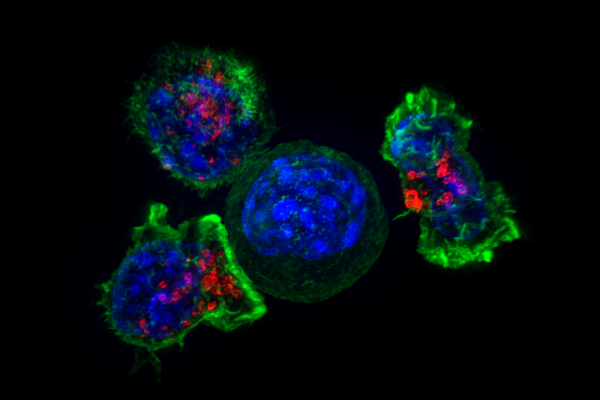News release
From:
1. Cancer: Ten-year remission of leukaemia associated with CAR T cell therapy *PRESS BRIEFING*
Decade-long remissions of leukaemia in two patients sustained by the persistence of modified immune cells (named CAR T cells) designed to trigger an immune response against cancer cells, are documented in Nature this week. These cases represent long-lasting CAR T cell responses, and provide insights into how long the treatment effects may last.
CAR T cell therapy is a type of immunotherapy that involves collecting and using the patient’s own immune cells to treat their condition. T cells are collected and modified to recognize and attack cancer cells, and the resulting CAR T cells are given back to the patient as a blood infusion. The long-term effects of this treatment have not been extensively studied.
J. Joseph Melenhorst and colleagues describe outcomes in two patients with chronic lymphocytic leukaemia who were enrolled on a phase I trial of CAR T therapy in 2010. Both patients achieved complete remission in that year and the CAR T cells remained detectable for more than 10 years of follow-up. The authors observe an evolution of the CAR T cells over time, with a highly activated population emerging and becoming dominant in both patients. These cells continued to demonstrate tumour-cell-killing characteristics and ongoing proliferation. These findings help us to understand the CAR T cell characteristics associated with anti-cancer response and long-term remission in leukaemia, the authors conclude.
**Please note that an online press briefing for the paper will take place UNDER STRICT EMBARGO on Tuesday 01 February at 1500 London time (GMT) / 1000 US Eastern Time**
Authors J. Joseph Melenhorst, Carl June and David Porter will discuss the research. This will be followed by a Q&A session.
You can sign up to join the briefing here.



 International
International



